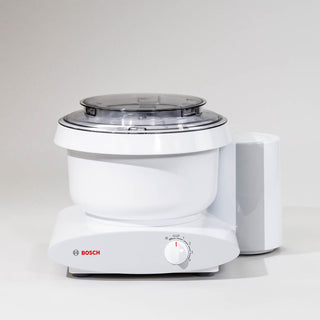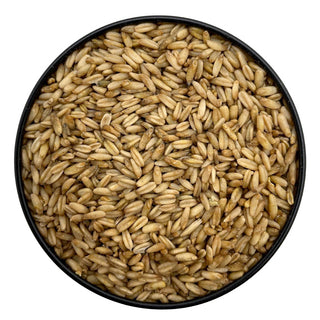Sprouted Hulless Oats
Sprouted Hulless Oats
- Unit price
- / per
Description
Sprouted Hulless Oats
Product of Canada
- High in Nutritional Value: Sprouted hulless oats are a powerhouse of nutrition, offering a higher content of vitamins and minerals compared to their non-sprouted counterparts. The sprouting process increases levels of B-vitamins, vitamin C, folate, fiber, and essential amino acids, making them an excellent choice for a nutrient-dense meal.
- Enhanced Digestibility: The process of sprouting reduces the presence of phytic acid, an antinutrient found in grains that can inhibit the absorption of minerals. This makes sprouted hulless oats easier to digest and allows for better absorption of nutrients by the body, benefiting overall digestive health.
- Rich in Antioxidants: Sprouted hulless oats are rich in antioxidants, including avenanthramides, which are unique to oats. These antioxidants can help combat oxidative stress in the body, reducing inflammation and lowering the risk of chronic diseases such as heart disease and diabetes.
- Supports Heart Health: The soluble fiber found in sprouted hulless oats, particularly beta-glucan, is known for its heart health benefits. It helps in lowering LDL (bad) cholesterol levels without affecting HDL (good) cholesterol, thereby reducing the risk of heart disease.
- Versatile and Easy to Incorporate Into Meals: Sprouted hulless oats have a pleasant texture and a slightly nutty flavor, making them a versatile ingredient in the kitchen. They can be used in a variety of dishes, from breakfast porridges and smoothies to baking recipes and savory meals, offering a nutritious boost to everyday meals.
Embrace the Wholesome Goodness of Sprouted Oats
For centuries, people wouldn’t eat grains and beans without natural processing like soaking, sprouting and fermenting. Cultures all over the world understood that proper preparation was vital to increase digestibility and nutrient availability. Some cultures passed this wisdom down through generations, while others lost it through industrialization.
Today, sprouting is resurging as more people seek foods prepared in slow and traditional ways. Sprouting offers no shortcuts, so customers trust that they are receiving a wholesome and healthful product.
For many people, unsprouted grains and beans cause digestive discomfort. Sprouting activates starch, protein and lipid degrading enzymes that “pre-digest” seeds. Namely, it converts dense proteins and complex carbs into more digestible amino acids and simple sugars. Despite the starch to sugar conversion, sprouted grains have a very low glycemic index.
All grains also contain nutrient inhibitors to protect valuable nutrients from being utilized until optimal growing conditions are met. Unfortunately, these prevent us from fully absorbing the seed’s nutrients. Sprouting unlocks nutrient inhibitors like phytic acid, depending on the seed and sprouting time. For example, chickpeas sprouted for 48 hours have a 67% decrease in phytic acid. For this reason, sprouted grains, seeds and beans are considered more digestible and bioavailable.
Optimize Baking Performance
- Increase loaf volume
- Softer and fluffier texture than unsprouted whole grains
- Richer and more complex taste profiles
- No bitterness, resulting in a sweeter flavour
- Low glycemic index
- Need less sugar in recipe
- Longer shelf life (over 1 year for flour)
- Bread stales at a slower rate
Storage
Store in a cool, dark, and dry location.
Disclaimer: This information is for educational purposes only. It is not intended to diagnose, treat, cure, or prevent any disease. The information provided is for educational purposes only and not intended as medical advice. Consult your professional health expert for medical advice. This product has been packaged in the same facility as wheat, tree nuts, barley, and other potential allergens.
Adding product to your cart











